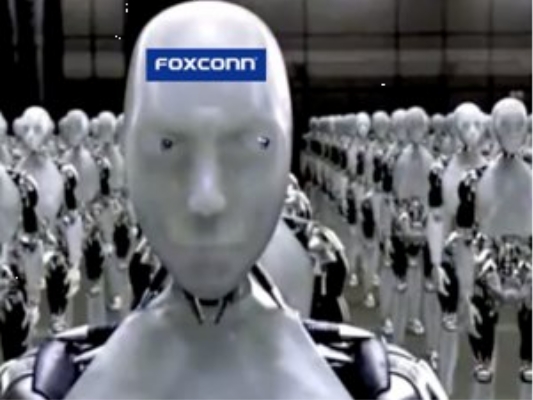
Foxconn replaces workers with robots
Mobile handset manufacturer Foxconn has reportedly moved to replace some 60,000 workers – half the number at its factory in Kunshan, China - with robots.
The Taiwanese-owned company has long been the subject of criticism over conditions in its factory cities which resemble vast work camps.
Employees have regularly reported working long hours for low pay, not being paid overtime and being required to live in sub-standard conditions.
But there’s a solution to that! Replace them – especially now that real wages are on the rise in China.
Foxconn has previously said it was aiming to have around 30% of its 1 million+ workforce replaced by robots by 2020. The aim, it says, is to eliminate tedious, repetitive jobs, freeing up workers to focus on higher-value processes like research and development and quality control.
Really? How many current process workers are likely to be retrained to undertake these roles. Some perhaps, but obviously not all. After all, such automation is driven by a desire to reduce overall costs and increase profit- not to raise the overall level of job satisfaction and pay for employees.
And the process is not confined to China. In the US, where workers are campaigning for a US$15 minimum wage, employers are already doing their sums.
"It’s cheaper to buy a $35,000 robotic arm than it is to hire an employee who’s inefficient making $15 an hour bagging french fries," says former McDonalds USA CO Ed Rensi.
As has been the case in the past, the current wave of automation has the potential to release millions of people from the drudgery of repetitive tasks. But this will only benefit society as a whole if the gains from automation are spread equitably.
At present, this does not seem to be what the multinational giants like Foxconn and McDonalds have in mind.










